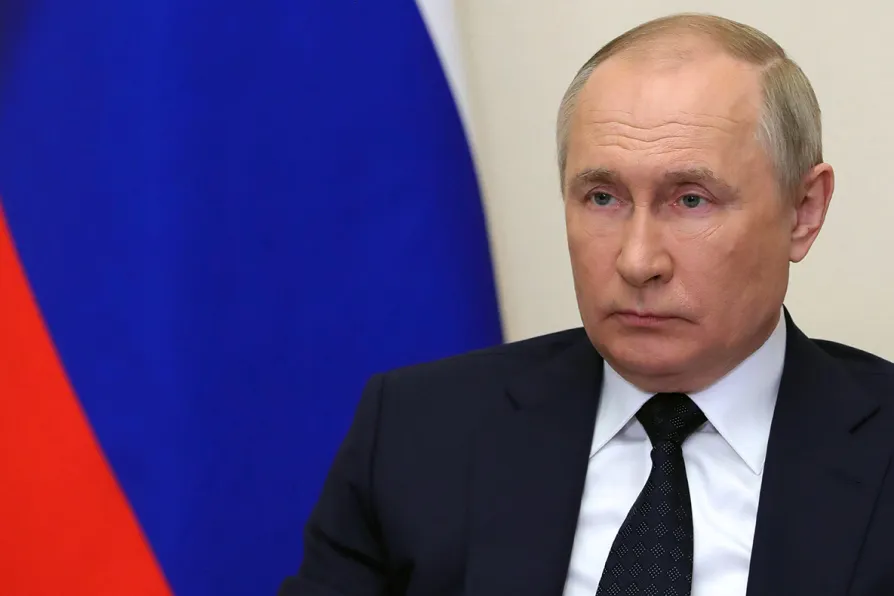Gas prices rocket as Putin says ‘unfriendly’ countries must pay in roubles

 Russian President Vladimir Putin attends a cabinet meeting via videoconference at the Novo-Ogaryovo residence outside Moscow, Russia, Wednesday, March 23, 2022
Russian President Vladimir Putin attends a cabinet meeting via videoconference at the Novo-Ogaryovo residence outside Moscow, Russia, Wednesday, March 23, 2022
EUROPEAN gas prices soared today after Russian President Vladimir Putin announced that he would only accept payments in roubles from what he described as “unfriendly” countries.
Wholesale gas prices shot up by 30 per cent following Wednesday’s announcement amid severe shortages and rising energy prices in Europe.
Mr Putin said that he was clear that if countries wished to buy gas from Russia then those that are deemed hostile would also need to buy its currency.
Similar stories

With both nations blasting Brussels for failing to secure their energy needs and mishandling first the Ukraine war and now the US tariff crisis, this joint statement signals trouble ahead for the EU’s geopolitical aims, reports RAINER RUPP













